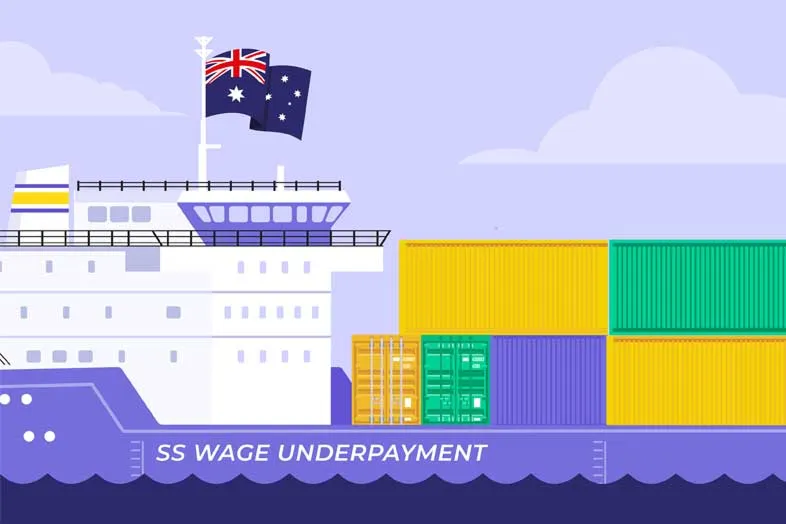The Closing Loopholes Act 2023 and Closing Loopholes No. 2 Act 2024 are changing the laws affecting Australian workplaces and creating a heightened era of compliance. In this article, we summarise the progress of the Closing Loopholes Bill, and what key changes are impacting employers across Australia.
What is the Closing Loopholes Bill in Australia?
The Closing Loopholes Bill was tabled in the House of Representatives in September 2023, proposing reforms that would have a substantial impact on employers, employees, directors, and contractors.
On 7 December 2023, the Federal Government announced a deal with the cross bench to split the bill into two parts. Part 1 of the bill, including components related to wage theft and labour hire workers, passed both Houses that same day, and received Royal Assent on 14 December 2023. The remaining components of the Bill received Royal Assent on 27 February 2024.
Employers will need to exercise greater caution and devote increased attention than ever before to ensure their compliance to these new obligations. We summarise the key changes in effect below.
Closing Loopholes Act 2023
Wage theft
Employers who intentionally underpay their employees now face severe consequences, including the possibility of potential criminal sanctions and fines reaching up to $1,565,000 for an individual, and the higher of $7,825,000 or 3 times the underpayment amount for a corporation.
These criminal offences are reserved for intentional conduct and employers who make honest mistakes will not be held accountable for wage theft.
Pathways to avoid criminal prosecution such as safe harbour and cooperation agreements also exist for proactive employers caught in the crosshairs of wage theft. These options are reserved for those who self-report, take diligent steps to rectify wage discrepancies, and have no history of underpayments.
Employers who are party to a cooperative agreement with the Fair Work Ombudsman (FWO) can bypass immediate involvement from the Director of Public Prosecutions or the Australian Federal Police.
Implications for employers
While most employers do not intentionally underpay their employees and do have good intent, these reforms do raise awareness of underpayment risk in organisations and prompt employers to prioritise compliance. Demonstrating due diligence will also be a strong foundation to access safe harbour provisions and engage into cooperative agreement.
Employers will inevitably confront challenges and financial burdens as they endeavour to implement safeguards and demonstrate their commitment to resolving underpayment issues and persuading the federal authorities that comprehensive preventative measures have been implemented to mitigate future misconduct. In these situations, employers should consider harnessing technology and automation to rectify past issues and showcase their commitment to ongoing compliance.
Pay equity for labour hire workers
Labour hire workers and unions now have the power to seek regulated labour hire arrangement orders from the Fair Work Commission (FWC), ensuring their remuneration aligns with what direct employees would receive under the host business' enterprise agreement. The FWC maintains the authority to refrain from issuing orders deemed unfair, taking into account input from affected businesses and employees. Host businesses will be obligated to share specified data with labour hire providers to facilitate compliance. Certain exemptions apply for short-term engagements, training programs, and small businesses.
A definitive test excludes service contractors from these labour hire loophole measures laws. The test will allow the FWC to issue a regulated labour hire arrangement order, only if the arrangement is for the supply of labour, and not for the provision of a service. This addition provides clearer guidelines on the scope of these regulations, ensuring a more straightforward application for businesses engaging labour hire workers.
The new test may require adjustments in how you classify and remunerate labour hire workers. Ensuring that your employment contracts and practices align with these new guidelines will be key to avoiding potential legal challenges.
Implications for labour hire companies
Labour hire companies are on the brink of substantial industry transformations, and a notable surge in costs if the FWC implements a regulated labour hire arrangement for their workforce. There will likely be a decline in the utilisation of labour hire companies, as the cost inevitably increases to mitigate the heightened risk and operational expenses tied to ensuring compliance to the host company's rates of pay under their enterprise agreement/s. This situation may result in a labour hire company managing a workforce subject to numerous and complex enterprise agreement rates of pay, thereby elevating the risk of non-compliance. Consequently, labour hire companies will need to establish robust measures and solutions to effectively uphold and sustain ongoing compliance as they face a revolving door of complex obligations.
Strengthening protection against discrimination
The protected attributes with respect to discrimination, adverse action, and harassment provisions within the Fair Work Act will be expanded to include individuals affected by family and domestic violence.
Small business redundancy exemption
Employers in liquidation or bankruptcy cannot rely on the small business redundancy provisions within the Fair Work Act where the employer is a ‘small business’ because the employment of one or more employees was terminated in the six months leading up to the bankruptcy or termination.
Closing Loopholes No. 2 Act 2024
The remaining provisions, including increases to penalties for civil remedies and serious contraventions, casual employment definition, and WHS changes received Royal Assent on 27 February 2024. We’ll now take you through key provisions from the Closing Loopholes No. 2 Act 2024 which align with wage compliance.
Heavy civil penalties for contraventions
Employers navigating the new landscape of workplace regulations should be aware of significantly increased civil penalties. Penalties are proposed to increase for individuals by five times to $93,900, and up to $469,500 for a corporation. For a serious contravention, penalties will further increase to $939,000, or $4,696,000 for a corporation.
In cases involving underpayment, for corporations, penalties will be the higher of either the maximum penalty, or three times the underpayment amount. This means that just a single contravention related to underpayments could be the trigger of a hefty fine of $469,500 (or even higher, depending on the underpayment amount). A noteworthy change is that serious contraventions no longer exclusively pertain to intentional acts; they encompass reckless behaviour as well.
Employers are at risk of being deemed reckless when their payroll team, legal department, or directors are aware that their payroll systems are insufficiently compensating employees in accordance with awards and enterprise agreements and failed to address the problem.
Implications for employers
Conventional payroll systems frequently lack the capacity to integrate the intricacies of modern awards, necessitating the establishment of comprehensive compliance monitoring systems. Furthermore, directors cannot evade personal accountability by delegating this responsibility; they must play an active role in implementing compliance monitoring systems to mitigate potential risks.
Directors and executives, therefore, must possess timely, precise information to effectively interrogate their payroll team and legal departments. Implementing a continuous compliance monitoring system guarantees regular compliance assessments and equips directors and management with pertinent data to confidently verify that they are meeting their compliance obligations.
Redefining casual employment
The definition of a casual employee is reverting to the pre-Rossato decision, which characterised casual employment by the absence of a firm advance commitment to work. This shift in determining casual status considers various factors that transcend the confines of a contract, including mutual understandings, work acceptance or rejection rights, future work prospects, the presence of full-time or part-time counterparts, and regularity of work pattern.
Casual employees will also be granted the ability to notify their employer of their desire to convert to a permanent form of employment after 6 months of continuous service. This right sits alongside the existing provision mandating employers extend permanent conversion offers to eligible casual employees. The Act introduces a framework for casual employees seeking a transition to permanent employment, detailing the guidelines governing how employers must respond to such notifications from employees seeking a change in their employment status.
After the Government’s consultation with the Australian Hotels Association, the Bill was revised for greater clarity regarding the definition of a casual employee. The Act now explicitly states that an employee who works a regular pattern of work can be a casual employee if there is no firm advance commitment to continuing and indefinite work.
This change offers greater clarity in that casual workers can work regular shifts. However, it's still crucial to maintain clear communication with casual employees about their employment status and rights, and to document their decisions regarding permanent employment.
Implications for employers
Employers find themselves once more grappling with the uncertainty surrounding the correct classification of their casual employees. As there are also now various pathways for casual workers to shift to permanent roles, employers must stay on top of their obligations to extend permanent conversion offers to casual employees and consistently assess their rostering to ensure that a casual employee does not maintain a regular work pattern.
Definition of employee and employer
Definitions of employee and employer will be added to the Fair Work Act. The definitions pivot on the genuine nature of the relationship between parties, transcending mere contractual terms. This transformation reverts back to pre-High Court of Australia decisions in Personnel Contracting & Jamsek, which rejected the multi-factorial test, which will now make a return.
Implications for employers
Much like the challenge posed with the new definition of casual employee, companies relying on contractors will grapple with the uncertainty surrounding their contracting arrangements. The revival of the multifactorial test underscores the importance of caution when structuring and overseeing contractor arrangements, as the contract itself is no longer sufficient to guarantee a contractor's non-employee status. Seeking legal counsel becomes imperative to ensure that the level of control exerted in these contracting relationships does not lead to a worker being classified as an employee. As demonstrated in cases predating the High Court's decision in Jamsek & Personnel Contracting, companies may find themselves burdened with substantial liabilities to pay out entitlements to contractors that are found to be employees.
Protections for contractors
Contractors are set to benefit from a robust set of minimum standards and additional safeguards. These measures include granting the FWC authority to establish minimum standards orders and guidelines, enabling digital labour platform operators and road transport businesses to forge consent-based collective agreements, empowering the FWC to arbitrate disputes involving employee-like workers unfairly deactivated from digital labour platforms, and permitting independent contractors below a specified income threshold to challenge unfair contract terms through the FWC.
These protections are afforded to contractors who are employee-like workers performing digital platform work and engaged in the road transport industry.
While the bill included increased protections and minimum standards for gig workers, the changes now limit the conditions under which gig workers are eligible for penalty rates, minimum engagement periods, and payments between tasks. Furthermore, it clarifies that gig workers who meet minimum condition requirements cannot claim employee status over being independent contractors.
Implications for digital labour platform operators
This modification may affect how organisations structure payments and manage gig workers. It is vital to reassess engagement terms to ensure they are in line with the new legislation and to understand the distinction between independent contractors and employees under these revised conditions.
With these new changes, the risk of encountering underpayment claims will notably surge, and affected companies need to start implementing processes and solutions now to ensure ongoing compliance and mitigate risks.
When will The Closing Loopholes Acts come into effect?
Based on current knowledge, changes will be in effect as follows:
The Closing Loopholes Act 2023
- Wage theft provisions apply on the later of either 1 January 2025, or the day after the Minister declares are Voluntary Small Business Wage Compliance Code.
- New rules for labour hire workers started on 15 December 2023.
- For other key dates for changes, see the FWO website
The Closing Loopholes No. 2 Act 2024
- Casual employment: 26 August 2024
- Civil penalties for wage underpayments: 27 February 2024.
- Employee definition: 26 August 2024
- Contractors: 26 August 2024, or an earlier date set by the Australian Government.
- For other key dates, see the FWO website
Irrespective of role – be it a director, c-suite executive, legal counsel or payroll manager – the time to ensure compliance is now. A proactive stance will be your shield in a rapidly evolving regulatory landscape.
What’s next for employers?
These reforms usher in a new era for employers, necessitating a proactive approach to compliance. It has become increasingly crucial for employers to establish and maintain continuous compliance protocols to effectively adapt to these recent developments. As the expenses associated with compliance are on the rise, leveraging technology to oversee workforce compliance obligations has become vital in building a sustainable compliance framework.
Automating proactive compliance in a new era of wage theft prevention
Yellow Canary enables large Australian employers to streamline compliance across employee payments, entitlements and Long Service Leave.
Our Always On Compliance (AOC) platform automates monthly reviews, comparing what was paid, to what should have been paid, according to the employee’s modern award, enterprise agreements or industrial instrument.
The AOC platform generates variance and driver reports which enable our clients to rapidly address any issues, avoid protracted remediation projects, and demonstrate to stakeholders and regulators that payroll compliance issues are being addressed.
In a new era of workforce compliance, Yellow Canary is helping employers do right by their employees, whilst avoiding hefty penalties incurred by unintentional underpayments.
* Yellow Canary content on this website is intended solely for the purpose of offering commentary and general knowledge. The content is not intended to constitute legal advice. You should seek legal or other professional advice before acting or relying on any of the content.








